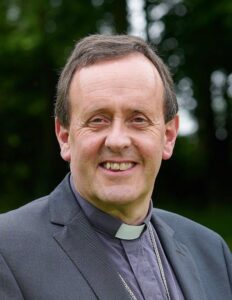Following the death of former Bishop of Ferns Brendan Comiskey, prominent abuse survivor and advocate Colm O’Gorman has called for a balanced reflection on the bishop’s legacy—one that neither overlooks the harm done nor unfairly isolates responsibility.
Offering sincere condolences to Comiskey’s family, friends, and those who mourn him, O’Gorman also highlighted the pain this moment may trigger for survivors of abuse in the Diocese of Ferns and beyond.
“Comiskey’s failings were real and they had devastating consequences,” O’Gorman said. “But he did not act in isolation—he followed directives laid out by canon law and the Vatican itself.”
O’Gorman, founder of the advocacy group One in Four, said that the concealment of clerical sexual abuse was not due to incompetence but was a policy deeply rooted in Church governance. He pointed out that only in 2019 did Pope Francis lift the “pontifical secret” that had enforced total secrecy over abuse cases under threat of excommunication.
Despite admiring Pope Francis for his leadership on social justice and inclusion, O’Gorman was sharply critical of the Church’s continued failure to fully admit to its institutional role in the cover-up. “The Pope needs to tell the damn truth,” he said bluntly.
While refusing to draw a definitive conclusion on Comiskey’s legacy so soon after his death, O’Gorman was clear that the bishop oversaw a period of immense suffering. “Extraordinary harm was done—not just to those of us who were abused, but to our families, our communities, and to many within the Church who had no part in these crimes.”
O’Gorman asked for compassion for both Comiskey’s loved ones and the many still living with the trauma of clerical abuse. “This is a human moment. Let’s hold space for everyone affected by it.”
You can listen back to the full interview here:
Audio Player
Meanwhile, Bishop of Ferns Ger Nash offered words of condolence, while also confronting the complex legacy Comiskey leaves behind.
Bishop Nash extended heartfelt sympathies to Comiskey’s family and his religious community, the Sacred Hearts. “He was deeply loved by them and played a central role in their lives,”
He also acknowledged Comiskey’s positive contributions to the Diocese of Ferns, notably the founding of the Christian Media Trust, a long-standing ecumenical media project. “It reflected his deep belief in the power of communication and unity among Christian denominations,”
However, The Bishop did not shy away from the darker aspects of Comiskey’s tenure. He acknowledged that Comiskey’s passing would stir painful memories for many, especially survivors of clerical abuse. “The Ferns Report is an indelible part of our history, it marks a time of immense failure—a time when the Church failed in its duty to protect vulnerable children.”
Reflecting on the changes since the report, Bishop Nash highlighted significant reforms: an independent National Board for Safeguarding Children, strict mandatory reporting procedures, and trained safeguarding personnel in every parish. “These systems are now in place to ensure that every concern is addressed and reported to the authorities,” he said.
Addressing survivors directly, The Bishop said “We want to listen. If sharing your story helps in any way, our doors and ears are open. We remain deeply sorry for the pain inflicted in the past, and we are committed to ensuring it never happens again.”
Listen back to the full interview here:
Audio Player



